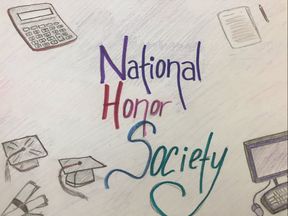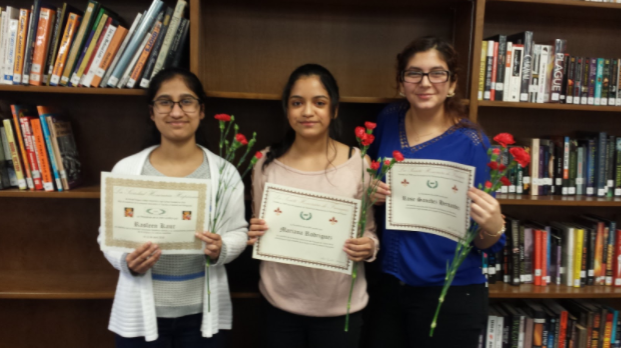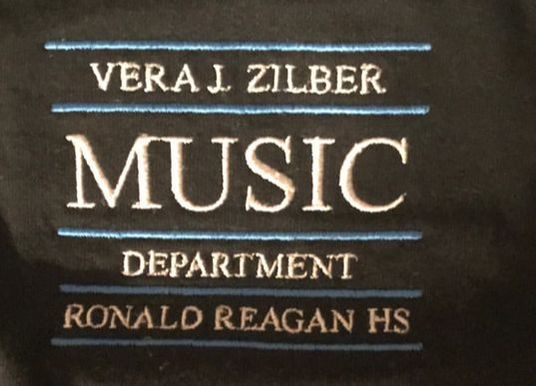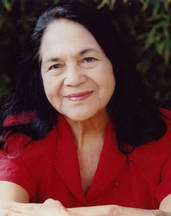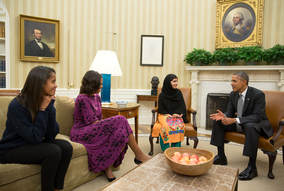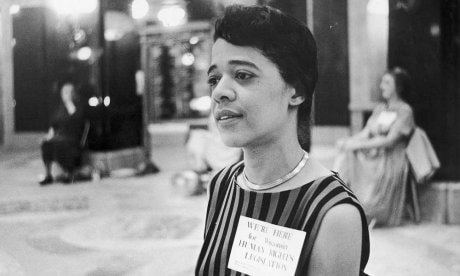Features
Reagan’s Perspective on Gun Violence
Samantha Hantsche
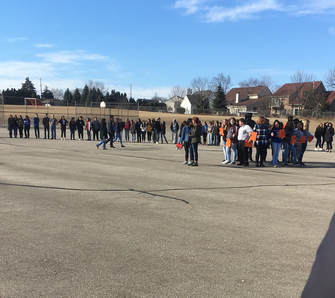
Parkland’s Stoneman Douglas school shooting was the third most deadly school shooting in American history, coming in third to Columbine and Sandy Hook. Unlike those shootings, however, these students are calling for lawmakers to take action to end gun violence. The #neveragain movement has taken over the country with protests such as the March for Our Lives and even the national school walkout that occured on March 14. With students around the country taking the initiative to speak their opinion on gun control, some Reagan students shared their thoughts on the matter.
Upon doing a poll on Instagram to show what a general consensus is for the student body, 80% stated they didn’t like guns in general, whereas 20% said they didn’t think they were so bad. One student messaged, “Not all guns need to be banned, but semi-automatics and automatics are bad. Also, bump stocks need to go,” while another said, “In my opinion, we should work on enforcing the gun laws already established, like background checks, before making new laws.”
Most people at Reagan, it seems, can agree that we need to do something about guns but people’s opinions vary on what that solution is. Brooklynn Hansen, a freshman, thinks that some guns should be banned and that background checks should be harsher, especially for mentally ill people. She said, “I feel that guns that can harm multiple people within seconds should be banned.” She also said that “guns we don’t need” should be banned, which includes the extremely dangerous kinds. Hayat Ibrahim, a sophomore, thinks that stricter gun control would be an effective way to stop gun violence. “I’m like right in the middle of ‘people kill people’ but guns are really useful to do that,” she said about banning guns. She also compared our situation to Australia and how they reformed their gun laws after they had one mass shooting. Kayla Jimenez, a freshman, agreed with Hayat’s background checks idea. As a whole, it seems the student body is split between banning semi-automatics and making background-checks harsher.
Gun control is an incredibly important issue and it is important that students address a topic that is so closely related to them. As a student body, we need to continue to question the status quo in regards to gun control and ensure we fight for change in things we are passionate about.
The National Honor Society isn’t just about honor roll, but it recognizes high school students who show leadership, service, and character. NHS challenges these students to improve by being apart of school activities and community service. NHS is full of many benefits that students might not have known or misunderstood.
According to the official NHS website, there are many benefits for joining. One is that NHS helps prepare students for college and their career path. This is because NHS gives students resources to help them prepare for the future.
One resource is helping with college admissions and scholarships. They have a scholarship search tool and college application essay writing workshops online. Another resource is doing the service projects which can give a student a new interest or possible career path.
Student’s also are apart of Leadership development. This means students will be doing LEAD (Leadership Experience and Development) conferences. LEAD conferences are weekend meetings to motivate leadership skills and communication between student leaders and advisors. Students and advisors gain many skills such as team building, stopping bullying, healthy lifestyles, and more. Another part of the Leadership Development is State Summits. This is a one-day program which is full of opened discussion about issues around the world and challenges in schools.
National Honor Society is more than just an honor roll for students. NHS isn´t just about getting good grades or a good GPA. Itś also about service, leadership and relationship skills, and building character for students to be successful in interviews and their career. As students participate in NHS they find connections with people to get internships and job recommendations. They can also start working with other community leaders on projects.
NHS gives students opportunities to get scholarships. There is a National Honor Society Scholarship fund to help the NHS Scholarship program. This programs gives scholarships to many students who stand out and help them open the pathway to college.
My personal opinion:
As someone who was invited, applied, and got into NHS, I have my own reasons to join. Although I wanted to join before I got invited, the invitation boosted my confidence in becoming a good leader. The questions to apply were asking about how you would define service, character, and leadership in your own words and why. As I was answering them, I understood what the club was about. It’s all about the student and their future. I believe NHS will help me find my career path, college, and gain leadership skills. NHS will be a great opportunity for me to be prepare for my future.
Being apart of the National Honor Society is a big commitment, but gives students a lot of great opportunities to help them become prepared for the future. NHS offers scholarships and many resources to get students started. These resources are either online programs or making connections with others.
According to the official NHS website, there are many benefits for joining. One is that NHS helps prepare students for college and their career path. This is because NHS gives students resources to help them prepare for the future.
One resource is helping with college admissions and scholarships. They have a scholarship search tool and college application essay writing workshops online. Another resource is doing the service projects which can give a student a new interest or possible career path.
Student’s also are apart of Leadership development. This means students will be doing LEAD (Leadership Experience and Development) conferences. LEAD conferences are weekend meetings to motivate leadership skills and communication between student leaders and advisors. Students and advisors gain many skills such as team building, stopping bullying, healthy lifestyles, and more. Another part of the Leadership Development is State Summits. This is a one-day program which is full of opened discussion about issues around the world and challenges in schools.
National Honor Society is more than just an honor roll for students. NHS isn´t just about getting good grades or a good GPA. Itś also about service, leadership and relationship skills, and building character for students to be successful in interviews and their career. As students participate in NHS they find connections with people to get internships and job recommendations. They can also start working with other community leaders on projects.
NHS gives students opportunities to get scholarships. There is a National Honor Society Scholarship fund to help the NHS Scholarship program. This programs gives scholarships to many students who stand out and help them open the pathway to college.
My personal opinion:
As someone who was invited, applied, and got into NHS, I have my own reasons to join. Although I wanted to join before I got invited, the invitation boosted my confidence in becoming a good leader. The questions to apply were asking about how you would define service, character, and leadership in your own words and why. As I was answering them, I understood what the club was about. It’s all about the student and their future. I believe NHS will help me find my career path, college, and gain leadership skills. NHS will be a great opportunity for me to be prepare for my future.
Being apart of the National Honor Society is a big commitment, but gives students a lot of great opportunities to help them become prepared for the future. NHS offers scholarships and many resources to get students started. These resources are either online programs or making connections with others.
Bienvenidos and Bonjour! The French and Spanish Honors Societies Welcome New Members
Jessica Rodriguez
April 12 marks a new chapter in our prestigious French and Spanish Honors Societies. These 8 new students are breaking barriers by learning how to communicate in other languages. Our world language department consists of students pushing through some of the hardships when learning a new language while dealing with other subjects, homework, and clubs and sports.
Learning a new language has its endless opportunities and benefits, as well.
One of the benefits of knowing more than one languages is that your brain activity increases that helps in decision making, multi tasking, and problem solving. Knowing two languages as a teenager also helps in memorization at a young age which can help in other subjects such as pre-calculus and global history. A common reason why people take another language is because it broadens work opportunities. According to Forbes.com, those who speak another language are more likely to get a job than those who only speak one language. The French and Spanish Honors Societies celebrate the students who have shown excellence in Spanish or French.
To be inducted into the French or Spanish Honors Societies students had to meet special requirements. Some of the requirements were that you have to have an “A” in your class and have a recommendation letter from your Spanish or French teacher. One of the most important requirements was that you had to have at least 10 hours of Spanish or French community service hours in total. This included tutoring a younger person or being a monitor for a world language class. According to Rasleen Kaur who was an inductee to the Spanish Honors Society, she managed to get all 10 hours through the International Club and helping at Reagan’s MPAF celebration last month. Not only do you need to have community service hours by the application deadline, but you also need to be a sophomore, junior, or senior to be part of FHS or SHS.
The induction ceremony took place in the library April 12 from 6:00 p.m until 7:00 p.m. It began with Madame Knight, the French teacher, announcing the returning members and new members. They all came together to expressed gratitude to the world language program here at Reagan. Each student said something different about their value of language learning, such as language builds connection and a sense of belonging which leads to positive action and languages can immerse you in art and theatre, said another. There was eight representatives in total present at the event. The seniors who are graduating were given tassels to wear at graduation to show their loyalty to the French or Spanish Honors Societies. One senior, Alyssandra Scaffidii, was given a special award for her passion and eagerness in learning French. Scaffidii hosted a student that came from France for three weeks in her home and during the summer, she will travel with others from Reagan to France to stay with a host family for two weeks. Each member received a flower and a certificate and signed their names into the book after the ceremony had ended. As a surprise, the students gave flowers to Profe Gonzalez, a Spanish teacher, and Madame Knight, a French teacher, as gratitude for their help. The families then gathered to feast upon delicious foods such as pasta, croissants, and flan.
I interviewed Sophomore Rosa Sanchez before tonight’s ceremony to get an inside perspective on what it means to become part of the French Honors Society:
J: Bonjour! Rosa. You recently applied to become part of the FHS and now you will attend the induction ceremony. What can you say where some of the challenges?
R: Yes! I did get in and some of the challenges of learning a new language was that in general it's a whole new different language and I guess I can’t practice at home because nobody speaks french. The only time I could speak it with other people was in class.
J: How did you overcome some challenges when it came to speaking French?
R: Okay so studying is really important for me. If I know I'm not really good with a subject or with any verbs I go home and I study them. I tried to use some Quizlet so that I can really learn them.
J: Who helped you along the way in learning a new language?
R: A teacher, like everything I learned was thanks to Madame. Also my brain and my friends! Duolingo, an app that was recommended on my phone.
J: If you could give advice to anyone who wants to learn French, what would you tell them?
R: Practice. That's the only way you're going to nail it with your learning in class and not just like practice and study but also use it right it. Speak it, listen to it. Listen to music in French and practice writing it, it’s really important.
J: Do you have any other world you’ll like to share?
R: Thank you French and Spanish teachers for helping students in need. They really help students learn.
Learning a new language has its endless opportunities and benefits, as well.
One of the benefits of knowing more than one languages is that your brain activity increases that helps in decision making, multi tasking, and problem solving. Knowing two languages as a teenager also helps in memorization at a young age which can help in other subjects such as pre-calculus and global history. A common reason why people take another language is because it broadens work opportunities. According to Forbes.com, those who speak another language are more likely to get a job than those who only speak one language. The French and Spanish Honors Societies celebrate the students who have shown excellence in Spanish or French.
To be inducted into the French or Spanish Honors Societies students had to meet special requirements. Some of the requirements were that you have to have an “A” in your class and have a recommendation letter from your Spanish or French teacher. One of the most important requirements was that you had to have at least 10 hours of Spanish or French community service hours in total. This included tutoring a younger person or being a monitor for a world language class. According to Rasleen Kaur who was an inductee to the Spanish Honors Society, she managed to get all 10 hours through the International Club and helping at Reagan’s MPAF celebration last month. Not only do you need to have community service hours by the application deadline, but you also need to be a sophomore, junior, or senior to be part of FHS or SHS.
The induction ceremony took place in the library April 12 from 6:00 p.m until 7:00 p.m. It began with Madame Knight, the French teacher, announcing the returning members and new members. They all came together to expressed gratitude to the world language program here at Reagan. Each student said something different about their value of language learning, such as language builds connection and a sense of belonging which leads to positive action and languages can immerse you in art and theatre, said another. There was eight representatives in total present at the event. The seniors who are graduating were given tassels to wear at graduation to show their loyalty to the French or Spanish Honors Societies. One senior, Alyssandra Scaffidii, was given a special award for her passion and eagerness in learning French. Scaffidii hosted a student that came from France for three weeks in her home and during the summer, she will travel with others from Reagan to France to stay with a host family for two weeks. Each member received a flower and a certificate and signed their names into the book after the ceremony had ended. As a surprise, the students gave flowers to Profe Gonzalez, a Spanish teacher, and Madame Knight, a French teacher, as gratitude for their help. The families then gathered to feast upon delicious foods such as pasta, croissants, and flan.
I interviewed Sophomore Rosa Sanchez before tonight’s ceremony to get an inside perspective on what it means to become part of the French Honors Society:
J: Bonjour! Rosa. You recently applied to become part of the FHS and now you will attend the induction ceremony. What can you say where some of the challenges?
R: Yes! I did get in and some of the challenges of learning a new language was that in general it's a whole new different language and I guess I can’t practice at home because nobody speaks french. The only time I could speak it with other people was in class.
J: How did you overcome some challenges when it came to speaking French?
R: Okay so studying is really important for me. If I know I'm not really good with a subject or with any verbs I go home and I study them. I tried to use some Quizlet so that I can really learn them.
J: Who helped you along the way in learning a new language?
R: A teacher, like everything I learned was thanks to Madame. Also my brain and my friends! Duolingo, an app that was recommended on my phone.
J: If you could give advice to anyone who wants to learn French, what would you tell them?
R: Practice. That's the only way you're going to nail it with your learning in class and not just like practice and study but also use it right it. Speak it, listen to it. Listen to music in French and practice writing it, it’s really important.
J: Do you have any other world you’ll like to share?
R: Thank you French and Spanish teachers for helping students in need. They really help students learn.
Music is the language of the heart and soul. A part of music is the sound of the voice. Many of Reagan’s talented chorus will sing their hearts out at the Spring Choral Performance on April 25th. New songs, new theme, and anticipation for summer break are alive as it’s one of the closing events for the school year.
With the choral concert coming closer and closer, students are ecstatic to share what’s been under wraps. The songs they have learned give an essence of importance. Choir is one of the most cherished arts at Reagan, with students at all grade levels in participation, who enjoy it by singing and expressing their musical creativity through the art of their voice.
These students work extremely hard to eventually showcase their work in front of a whole audience. Students like Aleeya Sengdao and Clara Knitter work in and out of class to perfect their singing voices and match the pieces. “I practice outside of class and when I get to class if there's anything to scrub I make sure to note it in my sheet music,” said Sengdao. Their hard work pays off, after constant nights of practice it will be 100% worth seeing.
The instructors of this concert are especially excited for everyone to see Reagan students in action. “They’ve worked very hard,” said Ms. Wylie. The students have been going through strenuous amounts of language and vocal training. Choir student Knitter, expressed her excitement for the upcoming choral concert and the new pieces they’re going to perform, as well saying, “Each choir has put together the best parts for the audience,” leaving students, staff, and family awaiting for what’s to come.
Onto the events within this musically oriented event... One of the main events is the ultimate finale. The Mendelssohn-Elijah, a grand twenty-five minutes of vocals and music with a small mere pause occupies this position. The Elijah has a deeper significance: As sophomore Sengdao, tells that it represents the parting of seniors in choir from Reagan. Essentially, it’s a final goodbye. On the other hand, students admire the difficulty, as students, like Knitter, exclaimed, “My favorite part of the concert will most definitely be a part of the last movement coming from "Elijah", also recognizing it’s tricky movements for both first and fourth year students alike to master, but in the end being totally worth it.
Another crucial part of the program is the world music, essentially languages from around the world. Students haven’t said too much, but Wylie was happy to share, saying that there were countries such as South Africa, Latin America, India, and Ishkabana for starters —— an immense amount of regions from all over the world. A foreign language piece that everyone should be ready for is the piece called “Las Marias”. Ms. Wylie mentioned it’s ‘polyrhythmic tendencies’ and is bursting to showcase it to the general public.
On the last note, expect a lot of diversity. As Wylie said herself, expect two mini concerts all in one! These students work hard in all that they do.
“People who aren't in those classes don’t understand what it really means until they see the concert and it will really make your friends and family feel supported if you’re there in the here and now,” said Wylie.
With the choral concert coming closer and closer, students are ecstatic to share what’s been under wraps. The songs they have learned give an essence of importance. Choir is one of the most cherished arts at Reagan, with students at all grade levels in participation, who enjoy it by singing and expressing their musical creativity through the art of their voice.
These students work extremely hard to eventually showcase their work in front of a whole audience. Students like Aleeya Sengdao and Clara Knitter work in and out of class to perfect their singing voices and match the pieces. “I practice outside of class and when I get to class if there's anything to scrub I make sure to note it in my sheet music,” said Sengdao. Their hard work pays off, after constant nights of practice it will be 100% worth seeing.
The instructors of this concert are especially excited for everyone to see Reagan students in action. “They’ve worked very hard,” said Ms. Wylie. The students have been going through strenuous amounts of language and vocal training. Choir student Knitter, expressed her excitement for the upcoming choral concert and the new pieces they’re going to perform, as well saying, “Each choir has put together the best parts for the audience,” leaving students, staff, and family awaiting for what’s to come.
Onto the events within this musically oriented event... One of the main events is the ultimate finale. The Mendelssohn-Elijah, a grand twenty-five minutes of vocals and music with a small mere pause occupies this position. The Elijah has a deeper significance: As sophomore Sengdao, tells that it represents the parting of seniors in choir from Reagan. Essentially, it’s a final goodbye. On the other hand, students admire the difficulty, as students, like Knitter, exclaimed, “My favorite part of the concert will most definitely be a part of the last movement coming from "Elijah", also recognizing it’s tricky movements for both first and fourth year students alike to master, but in the end being totally worth it.
Another crucial part of the program is the world music, essentially languages from around the world. Students haven’t said too much, but Wylie was happy to share, saying that there were countries such as South Africa, Latin America, India, and Ishkabana for starters —— an immense amount of regions from all over the world. A foreign language piece that everyone should be ready for is the piece called “Las Marias”. Ms. Wylie mentioned it’s ‘polyrhythmic tendencies’ and is bursting to showcase it to the general public.
On the last note, expect a lot of diversity. As Wylie said herself, expect two mini concerts all in one! These students work hard in all that they do.
“People who aren't in those classes don’t understand what it really means until they see the concert and it will really make your friends and family feel supported if you’re there in the here and now,” said Wylie.
International Women’s Day: 3 Stories of Inspirational Women
Jessica Rodriguez
Vel Phillips was born on February 18, 1924 in Milwaukee, Wisconsin and became a powerful figure in the fight for equal rights. Her story tells of a remarkable journey to build a better community and gain rights for African Americans. She went to the Howard University in 1946 and then graduated from The University of Wisconsin Law School, becoming the first African American to accomplished this goal. She ran for elective office but lost the election due to her racial background. Nevertheless, she persisted on and became the first African American woman to become the 13th District Children's Court judge. Phillips won the election and became the first African American and alderwoman of Milwaukee's city council. In 1962, Vel Phillips officially proposed the Fair Housing Act to the other city council members. The Fair Housing Act is a federal law that protects the buyer or renter from discrimination. Nevertheless, the law was rejected multiple times. In fact, the Fair Housing Act was rejected 4 times over the course of five years. The people of Milwaukee were not losing hope, however, and the fight for equality only became stronger after each time the law was rejected. Vel Phillips march on equal rights began when she was appointed as in Milwaukee.
It wasn't until 1967 that she joined forces with Milwaukee NAACP's Youth Council. In August of 1962, NAACP's Youth Council and 200 people from the city marched on Sixteenth Street to the south side. In the crowd was Father Groppi, a Catholic priest that also led the way for equal rights. On the other side of the street, a crowd of white supremacy allies were gathering. Vel Phillips decided to support the NAACP and marched on with them and Father Groppi. The marches became violent and escalated into a riot. Vel Phillips was arrested but was released the next morning when they found out she was an alderwoman. The first march wasn't the last one and the activists persisted on for 200 consecutive nights between August of 1967 through March of 1968. After the assassination of civil rights leader, Martin Luther King, the Civil Rights Act of 1968 went into full affect which prohibited discrimination concerning housing, sales, and business. After the Fair Housing Act, Vel Phillips continued her long career as a powerful politician. In the 70s, Vel Phillips became the first African American woman judge in Milwaukee and the first African American woman to become statewide constitutional office as Secretary of State. Today, she uses her voice to help the community of Milwaukee with charitable work and speaking across schools to educate the youth of today.
Malala Yousafzai was only a young girl when she became a pivotal leader in the fight for equal rights for females in Pakistan. Malala Yousafzai’s story of bravery and courage was what led her to be named one of the most influential teens in the world. Her life from a small girl in a war-torn country to a Nobel Peace Prize winner at only age 17 captured the world. Yousafzai’s rise to a civil rights leader began at age 11 when she started blogging for BBC. In this blog, Yousafzai wrote about the injustice and lack of education for young girls in Pakistan. The blog was anonymous until December of 2009 when her identity became known to the public due to Malala Yousafzai herself making a speech against the injustice. The biggest risk at that time was the Taliban. The Taliban is a radical terrorist group that believes in a controlled government. Malala had attended a school in which her father, Ziauddin Yousafzai had founded. As the Taliban started attacking all-girls schools, Malala’s activism only grew stronger making speeches about girls’ education and women’s rights. One of her speeches started off as, “How dare the Taliban take away my basic right for education?” Her growing platform led her to a Pakistan's National Youth Peace Prize in 2011. In 2012, Malala started receiving death threats from the Taliban because of her fight for women’s rights. Malala and her family feared an attack but believed that the Taliban would not actually harm a child. Her biggest fears became a reality when on October 9, 2012 a masked gunman entered her bus on her way to school and shot her in the head. Immediately after, Malala was rushed to England to receive treatment. She was in critical condition and was in a medically induced coma. Although she was shot in the head, she received no brain damage and recovered by 2013. Malala was only 15 when she was shot. The attempted assassination of Malala gathered media coverage around the world. Most of the western world was unfamiliar of the struggles and dangers that young girls face, just like Malala. On October 10, of 2013 Malala was awarded for her courage of fighting against the Taliban and was given the Sakharov Prize for Freedom of Thought. That same year, Malala published her first book called ‘I Am Malala: The Girl Who Stood Up for Education and Was Shot by the Taliban’ which is her story of becoming an advocate for women's rights. The book became a New York Times Bestseller and was awarded Goodreads Best Memoir and Autobiography. Her greatest work includes the Malala Fund which raises awareness for young girls fighting for their rights to attend school. For her 18th birthday, Malala opened a school for Syrian refugees girls in Lebanon. In Malala Yousafzai own words, “If one man can destroy everything, why can't one girl change it.”
Dolores Huerta is an American labor leader who fought for the rights for immigrant workers and helped changed the social and economical conditions in America. Her story, although less known, is still a remarkable story of how one woman rose up to create a movement of equal rights among workers. Dolores Huerta was born in New Mexico and was raised in the poverty neighborhood of Dawson. Her parents had divorced when Huerta was only 3 years old, and she moved to California to live with her mother. Her mother had to work numerous jobs to support her and her family. With all the hardships, Huerta still managed to excel through school, learning to play piano, writing, and even being a Girls Scout until she was 18. The achievements, however, weren’t able to stop the blatant racism that she, as a Mexican, faced daily. After graduating from high school, Huerta got married and had children but later divorced. After having dead-end jobs, Huerta applied to Stockton College for a teaching degree. She worked at an elementary school and through this experience she noticed that most of her students were farm workers. As a result, Dolores created the Agricultural Workers Association (AWA) which fought for the rights of child workers. Through the work she had done to raise awareness, Dolores Huerta met Cesar Chavez, a pivotal civil rights leader who fought for the rights of farm workers in California. In this partnership, Chavez and Huerta founded the National Farm Workers Association. They organized strikes, marches, and their most important method, boycotts. Known as the Grape Wine Boycotts of the 1960s, this was a way to provide awareness of the harsh conditions that grape farm workers face. Dolores Huerta was a skilled organizer and vocal leader that helped pushed the rights for those whose voice had been silenced.
It wasn't until 1967 that she joined forces with Milwaukee NAACP's Youth Council. In August of 1962, NAACP's Youth Council and 200 people from the city marched on Sixteenth Street to the south side. In the crowd was Father Groppi, a Catholic priest that also led the way for equal rights. On the other side of the street, a crowd of white supremacy allies were gathering. Vel Phillips decided to support the NAACP and marched on with them and Father Groppi. The marches became violent and escalated into a riot. Vel Phillips was arrested but was released the next morning when they found out she was an alderwoman. The first march wasn't the last one and the activists persisted on for 200 consecutive nights between August of 1967 through March of 1968. After the assassination of civil rights leader, Martin Luther King, the Civil Rights Act of 1968 went into full affect which prohibited discrimination concerning housing, sales, and business. After the Fair Housing Act, Vel Phillips continued her long career as a powerful politician. In the 70s, Vel Phillips became the first African American woman judge in Milwaukee and the first African American woman to become statewide constitutional office as Secretary of State. Today, she uses her voice to help the community of Milwaukee with charitable work and speaking across schools to educate the youth of today.
Malala Yousafzai was only a young girl when she became a pivotal leader in the fight for equal rights for females in Pakistan. Malala Yousafzai’s story of bravery and courage was what led her to be named one of the most influential teens in the world. Her life from a small girl in a war-torn country to a Nobel Peace Prize winner at only age 17 captured the world. Yousafzai’s rise to a civil rights leader began at age 11 when she started blogging for BBC. In this blog, Yousafzai wrote about the injustice and lack of education for young girls in Pakistan. The blog was anonymous until December of 2009 when her identity became known to the public due to Malala Yousafzai herself making a speech against the injustice. The biggest risk at that time was the Taliban. The Taliban is a radical terrorist group that believes in a controlled government. Malala had attended a school in which her father, Ziauddin Yousafzai had founded. As the Taliban started attacking all-girls schools, Malala’s activism only grew stronger making speeches about girls’ education and women’s rights. One of her speeches started off as, “How dare the Taliban take away my basic right for education?” Her growing platform led her to a Pakistan's National Youth Peace Prize in 2011. In 2012, Malala started receiving death threats from the Taliban because of her fight for women’s rights. Malala and her family feared an attack but believed that the Taliban would not actually harm a child. Her biggest fears became a reality when on October 9, 2012 a masked gunman entered her bus on her way to school and shot her in the head. Immediately after, Malala was rushed to England to receive treatment. She was in critical condition and was in a medically induced coma. Although she was shot in the head, she received no brain damage and recovered by 2013. Malala was only 15 when she was shot. The attempted assassination of Malala gathered media coverage around the world. Most of the western world was unfamiliar of the struggles and dangers that young girls face, just like Malala. On October 10, of 2013 Malala was awarded for her courage of fighting against the Taliban and was given the Sakharov Prize for Freedom of Thought. That same year, Malala published her first book called ‘I Am Malala: The Girl Who Stood Up for Education and Was Shot by the Taliban’ which is her story of becoming an advocate for women's rights. The book became a New York Times Bestseller and was awarded Goodreads Best Memoir and Autobiography. Her greatest work includes the Malala Fund which raises awareness for young girls fighting for their rights to attend school. For her 18th birthday, Malala opened a school for Syrian refugees girls in Lebanon. In Malala Yousafzai own words, “If one man can destroy everything, why can't one girl change it.”
Dolores Huerta is an American labor leader who fought for the rights for immigrant workers and helped changed the social and economical conditions in America. Her story, although less known, is still a remarkable story of how one woman rose up to create a movement of equal rights among workers. Dolores Huerta was born in New Mexico and was raised in the poverty neighborhood of Dawson. Her parents had divorced when Huerta was only 3 years old, and she moved to California to live with her mother. Her mother had to work numerous jobs to support her and her family. With all the hardships, Huerta still managed to excel through school, learning to play piano, writing, and even being a Girls Scout until she was 18. The achievements, however, weren’t able to stop the blatant racism that she, as a Mexican, faced daily. After graduating from high school, Huerta got married and had children but later divorced. After having dead-end jobs, Huerta applied to Stockton College for a teaching degree. She worked at an elementary school and through this experience she noticed that most of her students were farm workers. As a result, Dolores created the Agricultural Workers Association (AWA) which fought for the rights of child workers. Through the work she had done to raise awareness, Dolores Huerta met Cesar Chavez, a pivotal civil rights leader who fought for the rights of farm workers in California. In this partnership, Chavez and Huerta founded the National Farm Workers Association. They organized strikes, marches, and their most important method, boycotts. Known as the Grape Wine Boycotts of the 1960s, this was a way to provide awareness of the harsh conditions that grape farm workers face. Dolores Huerta was a skilled organizer and vocal leader that helped pushed the rights for those whose voice had been silenced.
